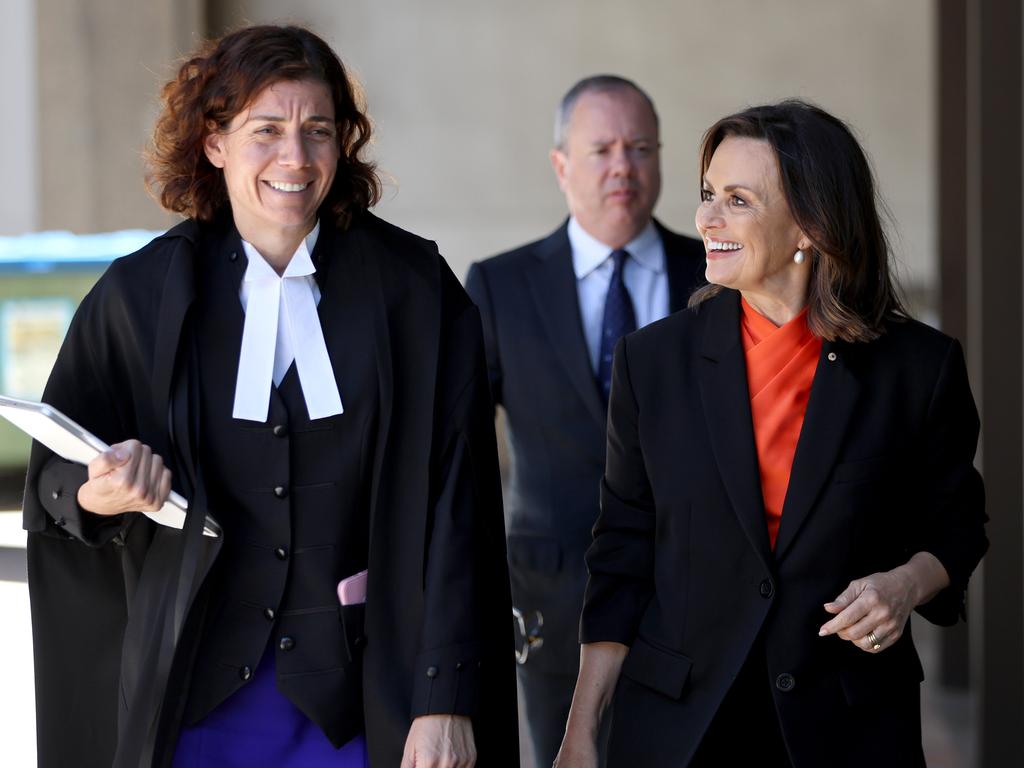Higgins’ claims in $2.4m payout contradicted by her own evidence: lawyers
Brittany Higgins made claims in her $2.4m rape claim settlement with the commonwealth which were false or contradicted by her own evidence, say lawyers for Bruce Lehrmann.

Brittany Higgins made 11 separate representations about her alleged rape in her $2.4m settlement with the commonwealth which were either false or contradicted by her own evidence in the defamation case brought by Bruce Lehrmann, his lawyers have claimed.
In newly released submissions by the parties to the case, Mr Lehrmann’s lawyers set out a detailed comparison of the claims Ms Higgins made in the Commonwealth deed, signed in December 2022, with her evidence in the still-to-be-decided defamation case.
The Albanese government paid Ms Higgins $2.445m in a settlement that relied entirely on her version of events, after a single-day mediation that excluded evidence from her former boss, then defence industry minister Linda Reynolds.
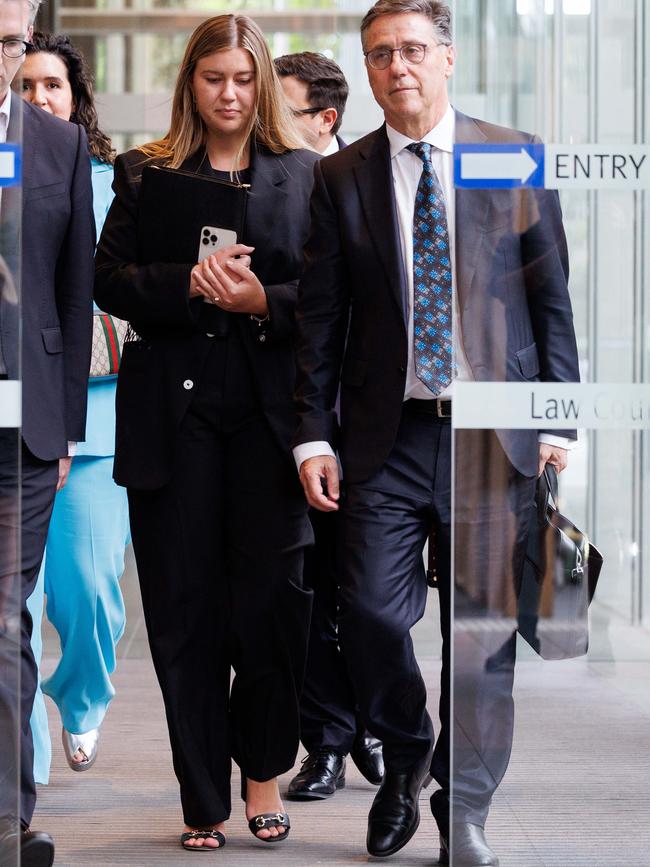
Earlier this year, The Australian revealed that the National Anti-Corruption Commission was examining a complaint by Senator Reynolds against Attorney-General Mark Dreyfus over his handling of the Higgins settlement, to determine if an investigation should be launched.
Among the claims made by Ms Higgins in the settlement deed, but disputed in a submission by Mr Lehrmann’s legal team, led by Steven Whybrow SC:
- that Mr Lehrmann got into Ms Higgins’ taxi on the night of the alleged rape without her agreement (she testified she had agreed);
- that he directed the cab to stop at Parliament House without her agreement (she gave evidence that she “just went along with it”);
- that he directed her to get out of the cab (she testified that “I don’t know why, but when it stopped I got out too”);
- that they didn’t speak on the Monday afterwards (they had coffee and exchanged emails).
Mr Lehrmann’s lawyers also point to claims made in the deed which have been strongly disputed in evidence, including that Ms Higgins told Senator Reynolds’ then chief of staff Fiona Brown that he had sexually assaulted her, an allegation always vehemently denied by Ms Brown.
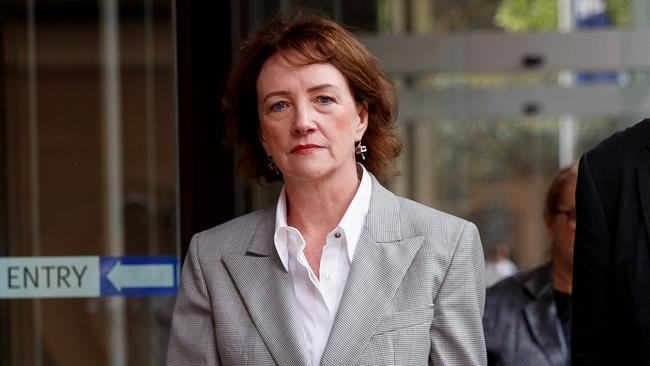
They also pointed to a claim by Ms Higgins that on 11 April 2019, Ms Brown said it was Ms Higgins’ problem to deal with the issue of sick leave for her mental health and also needing time off work to assist the AFP in its investigation.
By that date Ms Brown was no longer an active Chief of Staff, Mr Lehrmann’s lawyers noted, “let alone the unbelievable aspect of the supposed response to such a request for help with sick leave due to mental health issues”.
Ms Higgins’ evidence in the defamation case was that by 3 April 2019, Ms Brown “just disappeared …she left” and that by 5 April 2019 she had “stopped being our acting chief of staff”.
In the Deed, Ms Higgins claimed that: “Ms Brown made it clear by her words and demeanour that the events of 22/23 March 2019 must be put to one side; that (Ms Higgins) ought remain silent about the sexual assault, in order to keep her job/career”.
In the defamation case, Ms Higgins struggled to answer questions from Justice Michael Lee about anything Ms Brown had said, as opposed to what Ms Higgins “felt”, that indicated she should be silent about the alleged rape.
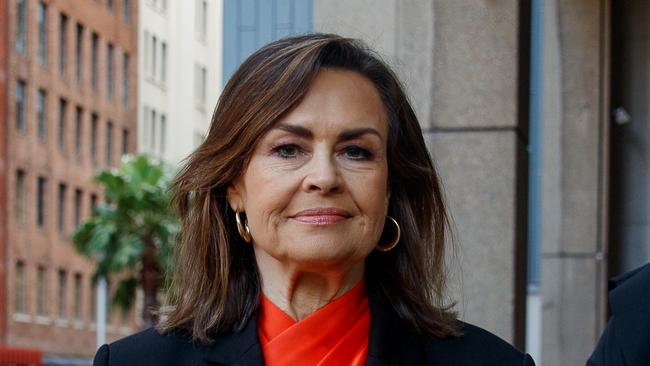
The settlement deed also stated that Senator Reynolds had not engaged with Ms Higgins at all during the election campaign. “She avoided (Ms Higgins) and made clear that she did not want (Ms Higgins) attending events with her,” the settlement deed stated.
In fact, Ms Higgins was photographed seated next to Senator Reynolds during the election.
Giving evidence at the defamation trial, Ms Higgins said she was “accidentally” seated next to the Minister because she was one of the last to arrive.
In response, Ten’s lawyers said that any suggestion that Ms Higgins had a financial motive for the rape allegations was “incoherent” when she had made the complaint years before the settlement and that the complaint against the Commonwealth dealt not with the rape itself but the way it had been handled.
“To the extent that there might be matters in the deed with the Commonwealth that are objectively wrong or inconsistent with factual findings that are made in this proceeding, those are not matters bearing on the central fact that Court must decide,” Ten submitted.
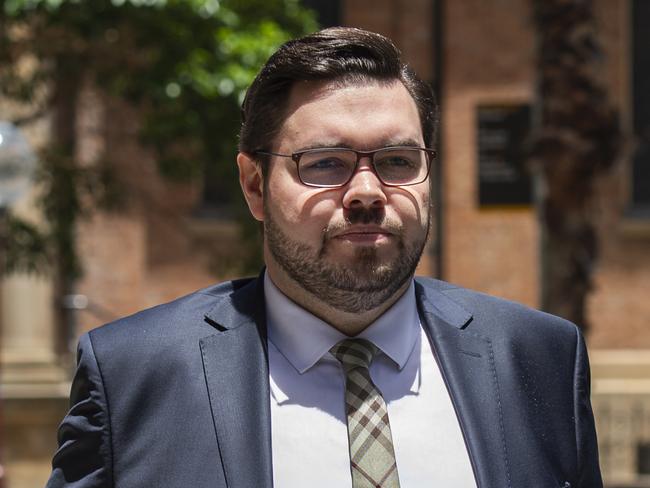
“Strikingly, the allegation of rape in the deed is entirely consistent with all other accounts that Ms Higgins has given of that event,” Ten said.
Mr Lehrmann’s team conceded that his evidence “was in a number of respects unsatisfactory, and it would be open to the Court to form an adverse view of his credit” but rejected claims that he was “a compulsive liar”.
Mr Lehrmann’s lawyers also accepted that it was open to Justice Lee to make adverse findings about some of his conduct, and that those would be relevant to assessing the real damage caused to his reputation.
As to his claim that he went back to Parliament House that night to work on Question Time briefs, it “might appear implausible, (but) does not for that reason alone, render it untrue or fantastic or that of a fantasist.”
Mr Lehrmann’s evidence about the number of drinks he bought Higgins at the Dock bar was wrong, they conceded, but so too was the evidence of other witnesses that night , who all “had no reason to retain minute details of this night and it is unrealistic to expect anyone to do so, almost 2 years later.”



